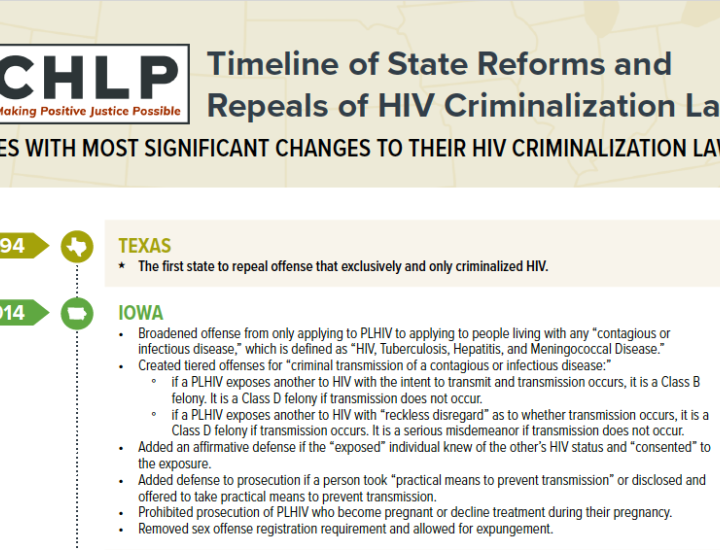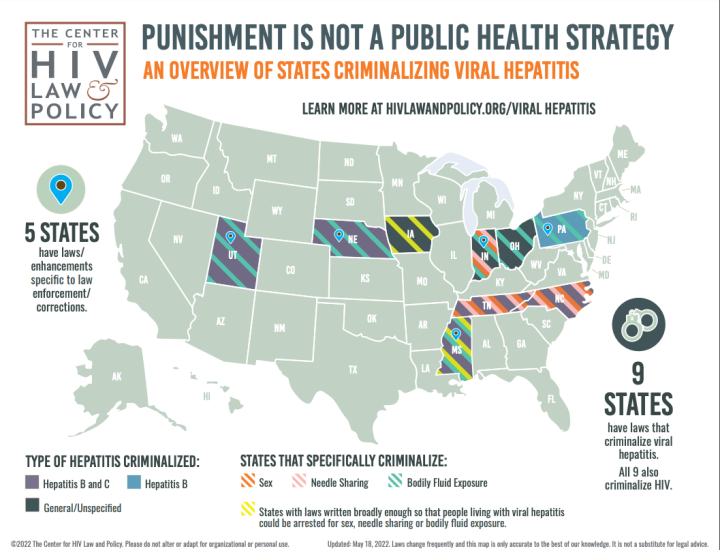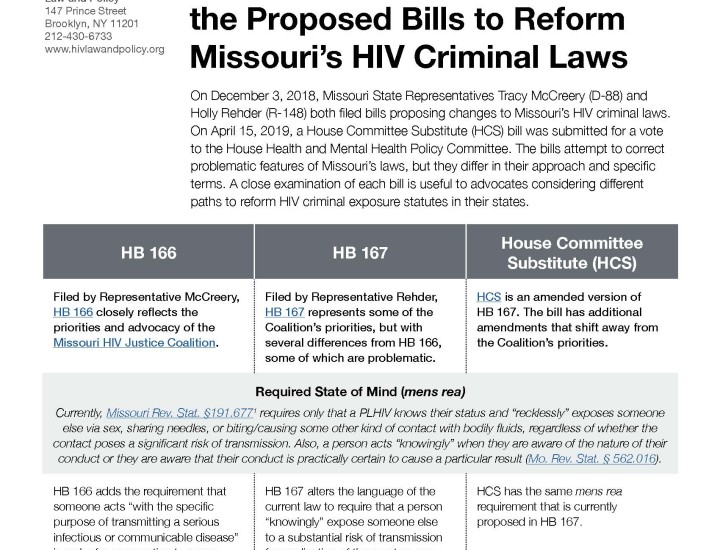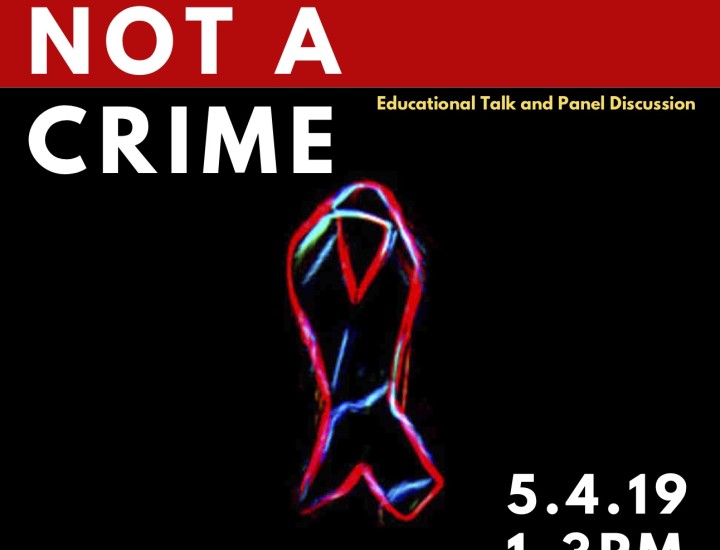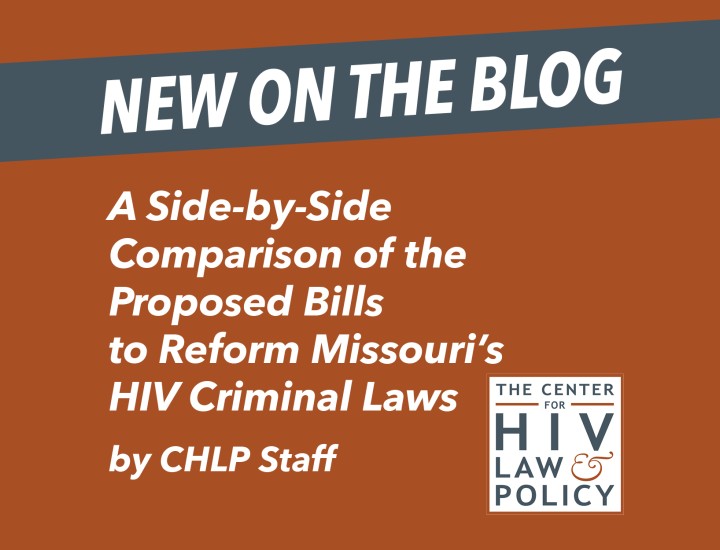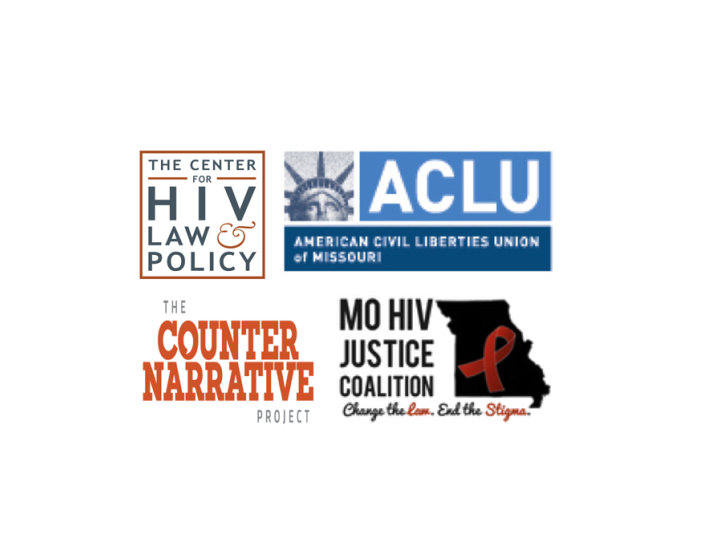
While we have made an effort to ensure that this information is correct and current, the law is regularly changing, and we cannot guarantee the accuracy of the information provided. This information may not be applicable to your specific situation and is not, and should not be relied upon, as a substitute for legal advice.
HIV-Specific Criminal Laws
Missouri has HIV-specific criminal statutes.
In 2021, Missouri amended its HIV-specific criminal laws. For more, see HIV Criminal Law Reform in Missouri Retains Felony Punishments for Exposure and Continues to Target Sex Workers and Incarcerated PLHIV.
For detail on the selected state law and cases interpreting it, see Missouri: Analysis & Codes, an excerpt from CHLP’s recently updated compendium of HIV- and STI-related criminal laws and civil laws relating to public health control measures in all 50 states, the military, and U.S. territories. To view the publication in its entirety, see HIV Criminalization in the United States: A Sourcebook on State and Federal HIV Criminal Law and Practice. Methodology is explained in the Introduction (page 5).
PLHIV and individuals living with serious infectious or communicable diseases face felony charges for exposing another person to the disease through conduct that carries a substantial risk of transmission.
It is a crime to expose prison guards, prison visitors, and other prisoners, as well as mental health employees, visitors, or other offenders at secure department of mental health facilities to HIV or hepatitis through bodily fluids.
PLHIV and individuals infected with serious infectious or communicable diseases may face felony charges for attempting to donate blood or other bodily tissue.
Sex workers living with HIV may be charged with a felony for the offense of prostitution.
Sexually violent predator statutes have been applied to PLHIV based solely on their HIV status.
Missouri also allows subsequent positive tests for other STIs to trigger prosecution without a complaining witness.
State Guidelines on Health Care Workers with HIV
We currently are in the process of reviewing and updating our resources and summaries related to health care workers and disclosure. In the meantime, please do not rely on this information as current, and get in touch with CHLP with any questions.
"Health care professional" is a member of the professional groups regulated by chapters 330 (podiatrists), 332 (dentists), and 335 (nurses); and sections 334.010 to 334.210 (physicians and surgeons).
Voluntary testing.
If the panel is uncertain about whether a procedure may pose some risk of HIV transmission, it may recommend that such procedures be performed only after the patients have been informed of the health care professional's infection status.
Voluntary evaluation process for infected HCWs who perform invasive procedures. The panel may determine which procedures HCW may or may not perform, or perform with modifications.
Minors' Access to STI and HIV Testing and Treatment
These summaries highlight key aspects of state laws governing the rights of minors to consent to testing and/or treatment for sexually transmitted infections (STIs) and HIV. Any such summary cannot capture the details and nuances of individuals state laws. Although roughly a third of the states permit health care providers to inform a minor's parents that their child is seeking STI-related services, none require it. Also, the law is fluid, and these summaries may not reflect recent legislative change in a particular state.
Every state in the country allows minors to consent to STI testing and care without parental approval, although a number of these set an age threshold for the right to consent without parental involvement. In these states, the minimum age ranges from 12 to 14 years of age.
As of the date of this posting, thirty-one states allow minors to also consent to HIV testing and treatment without parental approval.
Physicians may, but are not required to, notify the parents of the HIV test result.
HIV Testing
Unlike testing for most other infectious diseases, testing for HIV involves possible benefits as well as social, economic, and legal consequences that typically are not apparent or known to an individual considering testing. HIV-related testing is the gateway to health-preserving treatment; it also can be the basis of criminal prosecution for those who are sexually active, or relied on to exclude individuals who test positive for HIV from programs, employment, or insurance. Although state and federal laws prohibit much of this discrimination against people with HIV, the ability to enforce those rights usually depends on access to free legal services, which are increasingly limited and not available at all in roughly half of the states in the United States. Thus, the potential negative consequences of HIV testing at a particular time or location might inform an individual's decision of whether or when to get tested for HIV; or whether to test anonymously or through a "confidential" testing process that reports their test results and identifying information to the state but maintains the confidentiality of those results.
The American Medical Association has long defined informed consent as a process of communication between a patient and physician that results in the patient's authorization or agreement to undergo a specific medical intervention. Although informed consent is a legal concept rather than a medical one, many states use definitions of "informed consent" for purposes of HIV testing and medical procedures that in fact are inconsistent with the accepted legal definition, e.g., they do not require that an individual receive information or sometimes even notification that they are about to be tested for HIV. The Center for HIV Law and Policy (CHLP) accepts the legal and court-affirmed definition of informed consent; therefore, state protocols that call for "opt-out" testing (a patient is tested for HIV unless she/he objects) or that mirror general consent approaches are not counted as "informed consent" laws even in those instances where the state legislature has characterized their state law as requiring "informed consent." In short, CHLP does not consider or count laws that allow a patient's silence or general consent as granting authority to do confidential HIV testing as informed consent laws.
Pre-test counseling is required.
Post-test counseling is required. Scope of counseling shall be governed by the physician's judgment.
Testing must be available anonymously. Anonymous testing is available at designated anonymous testing sites.
Find the laws in a different state.
Copyright Information: CHLP encourages the broad use and sharing of resources. Please credit CHLP when using these materials or their content. and do not alter, adapt or present as your work without prior permission from CHLP.
Legal Disclaimer: CHLP makes an effort to ensure legal information is correct and current, but the law is regularly changing, and the accuracy of the information provided cannot be guaranteed. The legal information in a given resource may not be applicable to all situations and is not—and should not be relied upon—as a substitute for legal advice.
